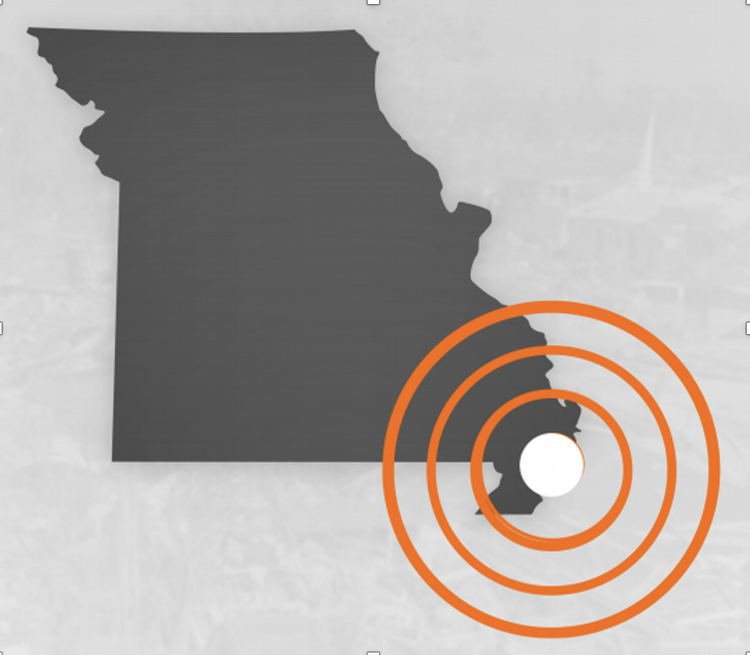
An earthquake in St. Louis via the New Madrid fault? What are the odds? They're not in your favor which is why you should consider adding earthquake insurance to your existing homeowners policy.
Did you know an earthquake that might devastate St. Louis and severely rattle the Greater Kansas City area is a real possibility? The St. Charles County Division of Emergency puts the odds of another major New Madrid earthquake happening before 2040 at 25 percent.
That's not a minor earthquake they're projecting. It's a major one, classified as registering 7.5 or higher on the Richter scale, courtesy of the New Madrid fault line that extends 120 miles in southeastern Missouri and into Arkansas. Due to the underlying geology in the area, a New Madrid earthquake may cause destruction in an area about 20 times larger than an earthquake with a southern California epicenter.
Today, a rupture of the New Madrid fault on the magnitude of the 1811-12 earthquake that shook the region could leave large parts of St. Louis and Memphis, Tennesseee uninhabitable. The quakes that occured back then were several times more powerful than the infamous 1906 earthquake that left much of San Francisco in ruins. What's considered a 'damaging' earthquake occurs in this area about every 80 years according to seismologists and the last one to hit the area was in 1895.
So the odds aren't in our favor.
What can you do to protect your home from the potential damage an earthquake might inflict?
Add earthquake coverage to your homeowners policy. Put simply, a homeowners policy and earthquake coverage don’t overlap, but work together to give your home more insurance protection. If a major quake did occur, think about how you would manage the costs to recover. Without insurance, how would you pay to repair or rebuild your home? How would you pay the costs to live somewhere else while your home is being repaired or rebuilt? How much would you owe a lender, who will expect you to repay the mortgage or home equity loan even if your home is destroyed? How much would you lose if your home were damaged or destroyed by an earthquake and you couldn’t afford to repair it?
Brick homes, wood frame homes with crawl spaces, and multi-story homes are more likely to be damaged in an earthquake. So how much more would you be paying by adding this coverage to your existing policy. That all depends upon the type of home you have, it's current estimated value and a few other factors - but bottom line - the additional coverage is more than worth the cost should a quake ever hit.
We would be happy to discuss potential coverage options with you and in the meantime, to get a great guide on all aspects of earthquake coverage we recommend you click on this link.
And if you'd like to know more about how you should react in the event that an earthquake ever does happen in this area, there are some valuable tips to be found here: Earthquakes | Ready.gov
